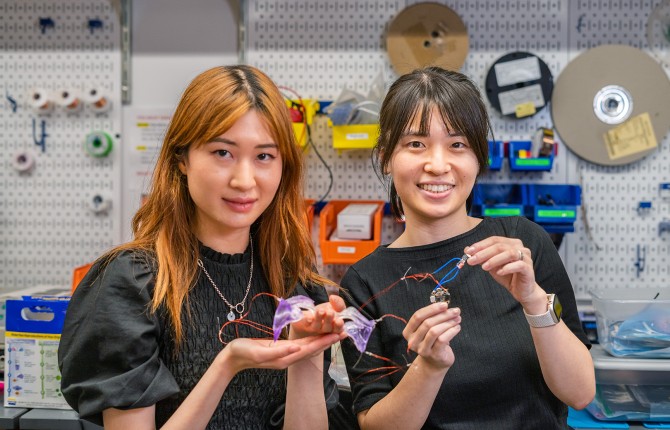There's something living under the bed in Morgan Chen's Brooklyn apartment. She's contained it in a storage bin, but it's constantly growing, changing shape and texture. Eventually it begins to mold. And it resembles human flesh.
It's neither a monster nor a shape-shifting beast. And it's not scary; it's SCOBY. The byproduct of fermenting tea, like the process that yields kombucha, SCOBY, which stands for symbiotic culture of bacteria and yeast, takes only days to produce a biofilm called bacterial cellulose. Drying the material significantly shrinks its thickness. It encases or fuses with other objects, and it can be dehydrated and rehydrated.
For multidisciplinary artist Chen, growing SCOBY in her apartment and deconstructing the material into different states has fueled her curiosity to integrate her art practice with emerging tech. From early June through mid-August, she has spent six weeks at Cornell's Hybrid Body Lab as the inaugural artist-in-residence, working with the latest interactive on-body technologies the lab is exploring while also collaborating with researchers to explore disciplines including on-skin fashion, tattoo art and makeup.
"To me, the deconstruction of material means to find meaning and purpose in its function," Chen says. "I find commonality and metaphors within materials. I use materials as a tool to build identity, or to better understand my own."







